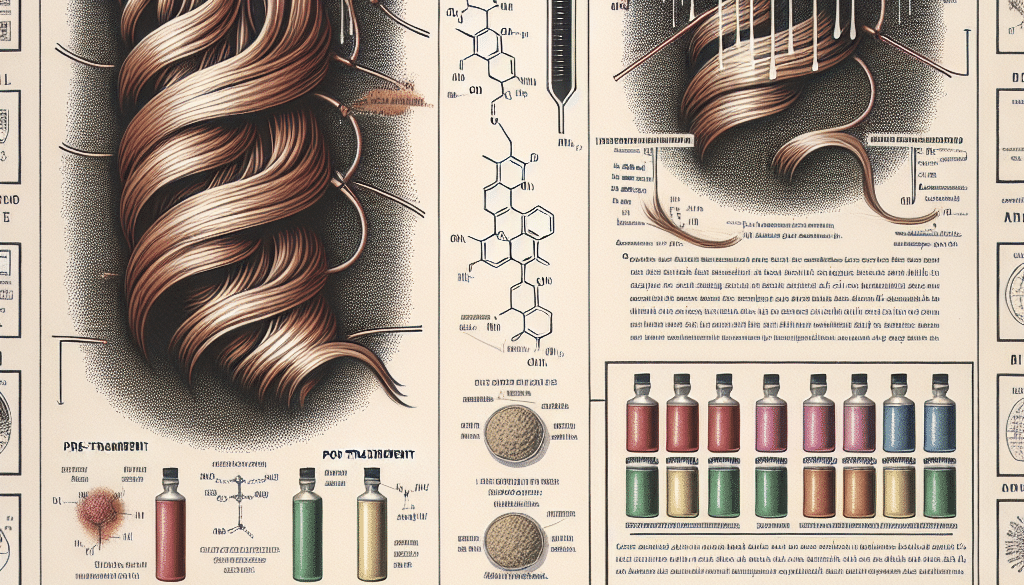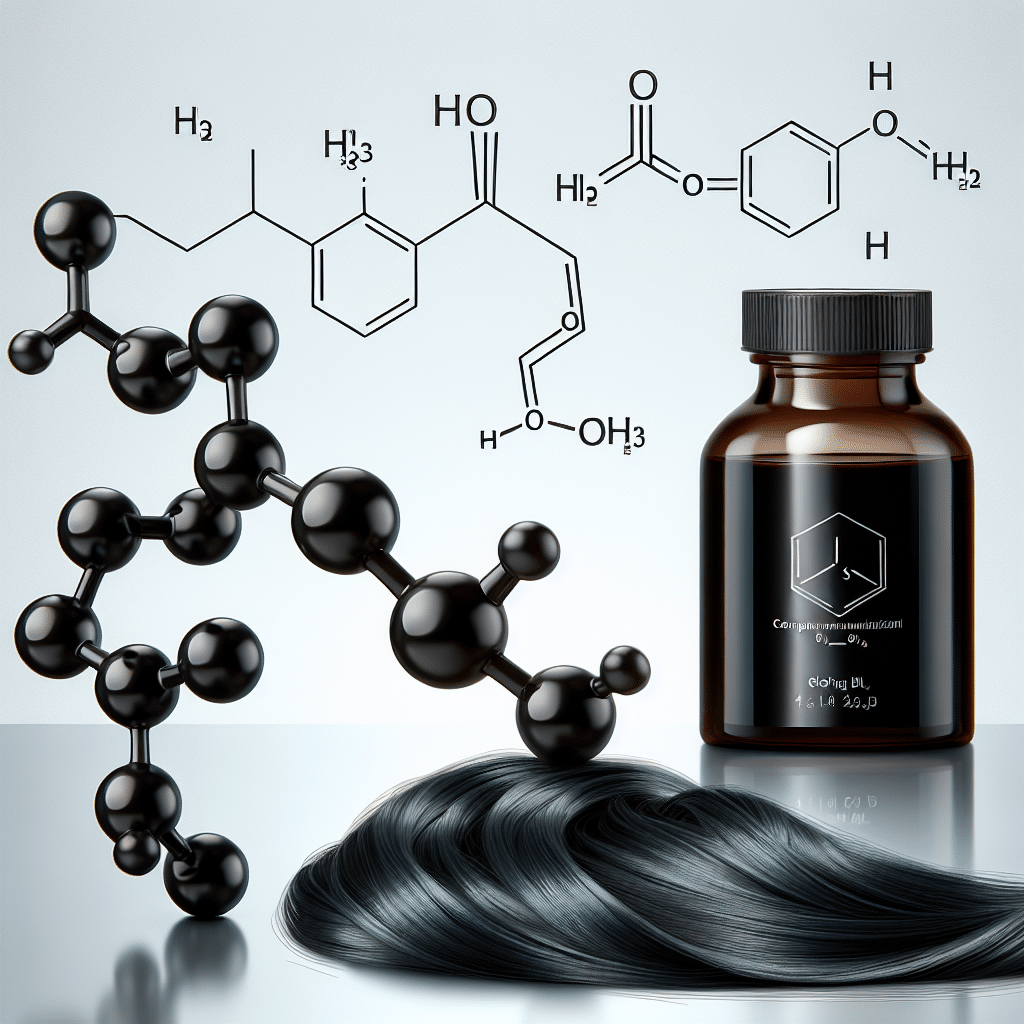Resorcinol in Hair Dye: Safety and Uses
-
Table of Contents
- Resorcinol in Hair Dye: Evaluating Safety and Applications
- Understanding Resorcinol: Chemical Properties and Functions
- Safety Profile of Resorcinol in Hair Dye
- Case Studies and Research on Resorcinol Exposure
- Alternatives to Resorcinol in Hair Dye
- Consumer Awareness and Best Practices
- Conclusion: Balancing Safety and Aesthetics
- Discover ETChem’s Protein Products
Resorcinol in Hair Dye: Evaluating Safety and Applications
Hair dye has become an essential part of personal grooming for many individuals, offering a way to cover grays, enhance natural color, or make a bold statement. Among the myriad of chemicals found in hair dye formulations, resorcinol is a common ingredient that has raised questions regarding its safety and uses. This article delves into the role of resorcinol in hair dyes, its safety profile, and the implications for consumers and manufacturers.
Understanding Resorcinol: Chemical Properties and Functions
Resorcinol is an organic compound with the formula C6H4(OH)2. It is a dihydroxy benzene derivative that is used in various industrial applications, including the production of plastics, resins, and as a chemical intermediate. In the context of hair dyes, resorcinol serves several functions:
- It acts as a color developer, helping to bond the dye to the hair shaft.
- Resorcinol works in tandem with other chemicals to produce a wide range of color shades.
- It helps to stabilize the color formulation, ensuring consistent results.
Safety Profile of Resorcinol in Hair Dye
The safety of resorcinol in hair dye has been a topic of discussion among researchers, regulatory bodies, and consumer advocacy groups. Studies have shown that resorcinol can be absorbed through the skin during the hair dyeing process, leading to concerns about its potential health effects. The primary areas of concern include:
- Allergic reactions and skin sensitization
- Endocrine disruption potential
- Long-term exposure risks
Despite these concerns, regulatory agencies such as the U.S. Food and Drug Administration (FDA) and the European Commission have deemed resorcinol safe for use in hair dyes at specific concentrations. However, they continue to monitor scientific data and may update regulations as new information becomes available.
Case Studies and Research on Resorcinol Exposure
Several studies have investigated the effects of resorcinol exposure from hair dyes. For instance, a study published in the International Journal of Toxicology evaluated the safety of resorcinol in hair dye and concluded that it is safe for consumers when used as directed. However, the study also recommended that manufacturers minimize the concentration of resorcinol in their products to reduce potential risks.
Another research conducted by the European Chemicals Agency (ECHA) assessed the risks associated with resorcinol and provided guidelines for safe use. The ECHA’s findings support the notion that while there are potential risks, they can be mitigated through proper formulation and usage instructions.
Alternatives to Resorcinol in Hair Dye
Given the concerns surrounding resorcinol, some manufacturers have begun exploring and using alternative ingredients. These alternatives aim to provide the same dyeing effects without the associated risks. Examples include:
- Natural plant-based dyes such as henna or indigo
- Resorcinol-free synthetic dyes
- Development of new chemical compounds with a better safety profile
While these alternatives offer a promising future for safer hair dye formulations, they may not yet deliver the same range of colors and lasting effects as traditional dyes containing resorcinol.
Consumer Awareness and Best Practices
For consumers who choose to use hair dyes containing resorcinol, it is essential to be aware of best practices to minimize risks:
- Follow the instructions on the hair dye package carefully.
- Perform a patch test before full application to check for allergic reactions.
- Limit the frequency of hair dyeing to reduce cumulative exposure.
- Consider using products with lower concentrations of resorcinol.
Consumers should also stay informed about the latest research and regulations regarding hair dye ingredients to make educated decisions about the products they use.
Conclusion: Balancing Safety and Aesthetics
The use of resorcinol in hair dye presents a complex balance between achieving desired aesthetic results and ensuring consumer safety. While current regulations permit the use of resorcinol within certain limits, ongoing research and consumer advocacy continue to influence the industry’s approach to hair dye formulations. As alternatives to resorcinol become more effective and widely available, we may see a shift towards safer, more natural options in the market.
The key takeaways for consumers are to be vigilant about the products they use, to follow safety guidelines, and to stay updated on scientific developments related to hair dye ingredients. For manufacturers, the challenge lies in innovating and reformulating products to meet safety standards without compromising on performance.
Discover ETChem’s Protein Products
In the pursuit of personal care and beauty, it’s not just about external applications but also about nurturing the body from within. ETChem’s protein products offer a range of high-quality collagen supplements that can complement your hair care routine by promoting healthy hair growth and maintenance.
ETChem’s collagen offerings, characterized by their neutral taste and instant solubility, are ideal for those looking to enhance their beauty regimen. With a variety of types including marine, bovine, and chicken collagen, consumers can choose the product that best suits their dietary preferences and health goals.
For more information on how ETChem’s protein products can support your overall wellness and beauty, please contact them at karen(at)et-chem.com.
About ETChem:
ETChem, a reputable Chinese Collagen factory manufacturer and supplier, is renowned for producing, stocking, exporting, and delivering the highest quality collagens. They include marine collagen, fish collagen, bovine collagen, chicken collagen, type I collagen, type II collagen and type III collagen etc. Their offerings, characterized by a neutral taste, instant solubility attributes, cater to a diverse range of industries. They serve nutraceutical, pharmaceutical, cosmeceutical, veterinary, as well as food and beverage finished product distributors, traders, and manufacturers across Europe, USA, Canada, Australia, Thailand, Japan, Korea, Brazil, and Chile, among others.
ETChem specialization includes exporting and delivering tailor-made collagen powder and finished collagen nutritional supplements. Their extensive product range covers sectors like Food and Beverage, Sports Nutrition, Weight Management, Dietary Supplements, Health and Wellness Products, ensuring comprehensive solutions to meet all your protein needs.
As a trusted company by leading global food and beverage brands and Fortune 500 companies, ETChem reinforces China’s reputation in the global arena. For more information or to sample their products, please contact them and email karen(at)et-chem.com today.





